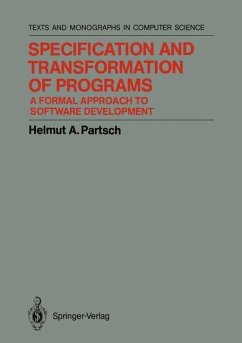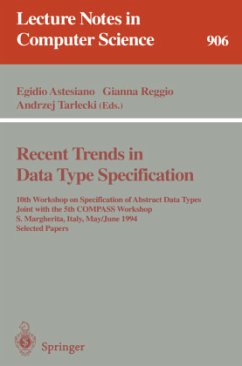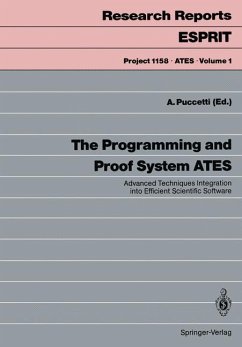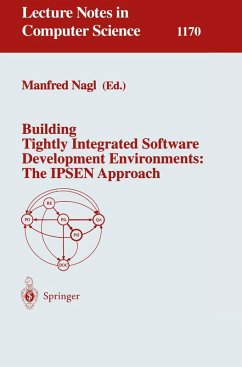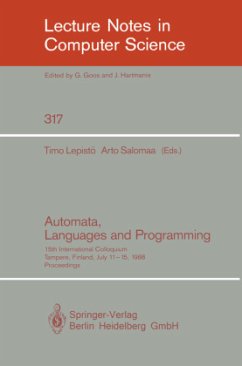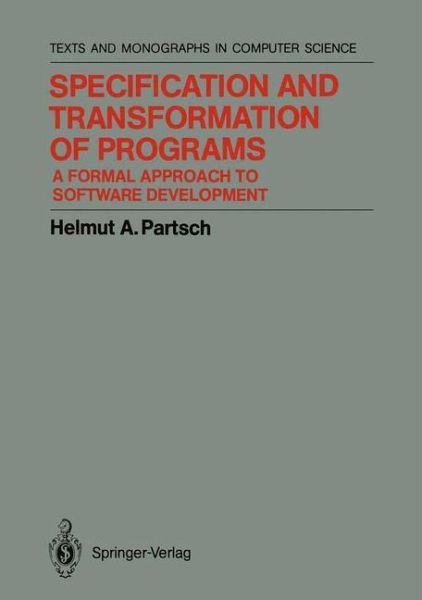
Specification and Transformation of Programs
A Formal Approach to Software Development
Mitarbeit: Partsch, Helmut A.
Versandkostenfrei!
Versandfertig in 1-2 Wochen
38,99 €
inkl. MwSt.
Weitere Ausgaben:

PAYBACK Punkte
19 °P sammeln!
Specification and Transformation of Programs is short for a methodology of software development where, from a formal specification of a problem, programs correctly solving that problem are constructed by stepwise application of formal, semantics-preserving transformation rules. This book is primarily intended as a general introductory textbook. It can also be seen as a comprehensive account of the transformational methodology developed within the Munich CIP project. The contents of the book reflect the essential steps in a sequential process of software development from an informally stated problem, via a formal problem specification, to a final, efficient program. Aspects considered include linguistic means for describing the various intermediate stages in the process, individual techniques for the transition between these stages, and strategies for applying these techniques. All aspects are illustrated by representative examples.
"Specification and transformation of programs" is short for a methodology of software development where, from a formal specification of a problem to be solved, programs correctly solving that problem are constructed by stepwise application of formal, semantics-preserving transformation rules. The approach considers programming as a formal activity. Consequently, it requires some mathematical maturity and, above all, the will to try something new. A somewhat experienced programmer or a third- or fourth-year student in computer science should be able to master most of this material - at least, this is the level I have aimed at. This book is primarily intended as a general introductory textbook on transformational methodology. As with any methodology, reading and understanding is necessary but not sufficient. Therefore, most of the chapters contain a set of exercises for practising as homework. Solutions to these exercises exist and can, in principle, be obtained at nominal cost from the author upon request on appropriate letterhead. In addition, the book also can be seen as a comprehensive account of the particular transformational methodology developed within the Munich CIP project.





